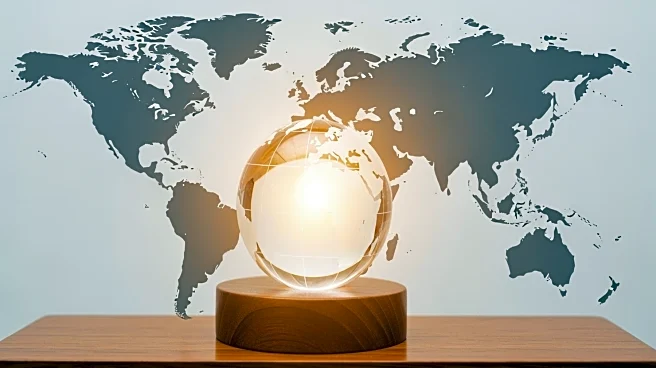What's Happening?
The United Nations General Assembly has adopted the 'Pact for the Future,' a comprehensive agreement aimed at revitalizing the UN's role in addressing global challenges. The pact, adopted during the Summit
of the Future, covers a wide range of issues including sustainable development, climate change, digital cooperation, and global governance. It includes two annexes: the Global Digital Compact and the Declaration on Future Generations. The pact aims to enhance international cooperation and make the UN more effective in the 21st century. Despite opposition from countries like Russia and Iran, the pact was adopted, signaling a commitment to multilateralism and global progress.
Why It's Important?
The adoption of the 'Pact for the Future' is significant as it represents a renewed commitment by the international community to tackle pressing global issues through multilateral cooperation. The pact's focus on sustainable development, climate change, and digital cooperation aligns with global priorities and the Sustainable Development Goals. It also addresses the need for reform in global governance structures, which could lead to more inclusive and effective international institutions. The pact's emphasis on future generations and digital cooperation highlights the importance of preparing for emerging challenges and opportunities in a rapidly changing world.
What's Next?
Following the adoption of the pact, the next steps involve implementing its provisions and ensuring that the commitments made are translated into concrete actions. This will require collaboration among UN member states, international organizations, and civil society. The pact's success will depend on the willingness of countries to work together and make necessary reforms in areas such as global governance and digital cooperation. The upcoming COP29 climate conference will be a critical test of the pact's climate commitments, and ongoing discussions on Security Council reform will indicate the potential for changes in global governance.
Beyond the Headlines
The 'Pact for the Future' also raises important questions about the role of international institutions in addressing global challenges. The emphasis on digital cooperation and future generations suggests a shift towards more forward-looking and inclusive approaches to global governance. However, the pact's lack of specific implementation details highlights the challenges of translating ambitious goals into actionable policies. The opposition from countries like Russia underscores the geopolitical tensions that can complicate multilateral efforts. The pact's success will ultimately depend on the ability of the international community to overcome these challenges and work towards a more equitable and sustainable future.











